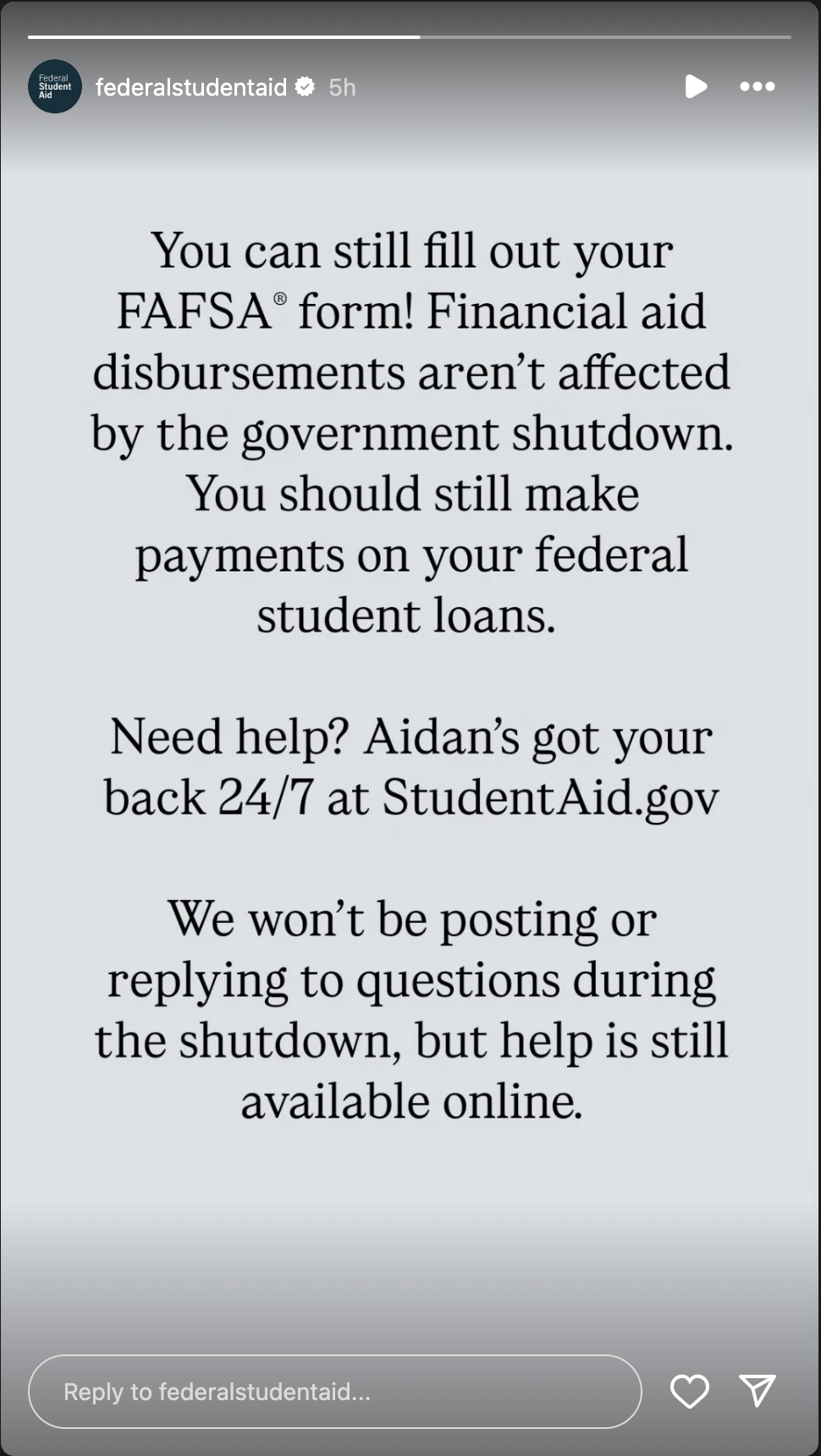The United States government has officially entered a shutdown, as of October 1, 2025, and the U.S. Department of Education is included. Since the Department of Education oversees the Free Application for Federal Student Aid (FAFSA), some parents and students may wonder: What does this mean for financial aid?
The great news is that while the government is currently in a standstill, the FAFSA form is still open, and you should not delay completing it. According to a memo from Secretary of Education, Linda McMahon, “The Department will continue to disburse student aid such as Pell Grants and Federal Direct Student loans, and student loan borrowers will still be required to make payments on their outstanding student debt.”
Why the FAFSA Still Matters
Even during a government shutdown, the FAFSA remains the most critical step in securing financial aid. Complete the 2026-2027 FAFSA early to keep your place in line while the government shutdown is in place. Financial aid, whether federal grants, loans, or work-study, is often distributed on a first-come, first-served basis. Filing now positions you ahead of others who wait, and it keeps you eligible for state grants and college-based aid that rely on your FAFSA information. FAFSA Tips for High School Seniors and ParentsWhat Happens During a Shutdown?
During a shutdown, federal agencies, including the Department of Education, often experience reduced staffing. That can mean delays in FAFSA processing or slower responses to questions. However: • The FAFSA system itself stays online and open. • You can still submit your application or renewal. • Colleges will still receive your FAFSA information, even if federal staff are limited. Understanding How the FAFSA WorksWhat Should Students and Parents Do Now?
Whether you’re a high school senior preparing for Fall 2026, or a current college student renewing your FAFSA, staying proactive is key. Here’s what you can do today: File Early: Complete your FAFSA as soon as possible. Submitting early increases your chances for state aid and institutional financial aid and scholarships. 2026-27 FAFSA Checklist: What You'll Need to Complete Your Application 10 Common FAFSA Mistakes that Could Cost You Financial Aid Track Deadlines:Each state sets its own FAFSA deadlines, and many award aid on a first-come, first-served basis. Check your state's FAFSA deadlines so you don’t miss out. Keep Records: Save a copy of your submitted FAFSA confirmation page and any emails you receive. These documents may be helpful if there are delays. Contact Financial Aid Offices: Colleges often provide guidance during uncertain times. If you have questions, reach out to the financial aid office at your chosen or prospective schools. Stay Informed: Stay up to date with the latest FAFSA information, deadlines and strategies for maximizing aid.While the government shutdown may slow some processes, it does not stop your ability to apply for financial aid. The FAFSA remains open, and submitting it now is one of the smartest steps you can take toward securing financial aid, grants, and federal student loans. Think of the shutdown as temporary; don’t put your education and future funding opportunities on hold. By acting now, you’ll be ready when everything returns to full speed.


